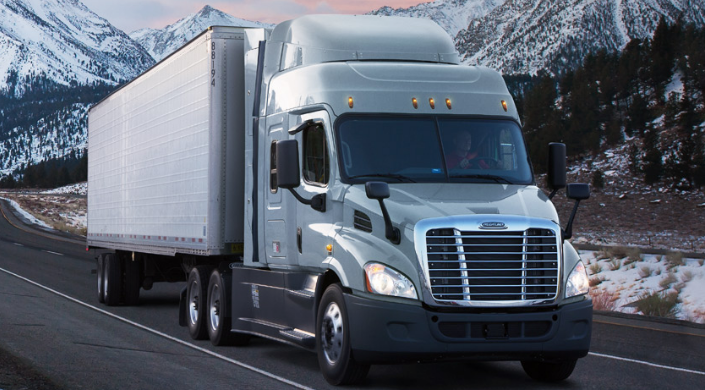US Freight Trucking Revenues to Grow 3.3% Annually
The US freight trucking industry is forecast to see revenue increases of 3.3% annually in nominal terms through 2022, according to Freight by Truck: United States, a report recently released by Freedonia Focus Reports.
Advances will be driven by rising manufacturing, retail, and trade activity. Faster gains will be restrained by ongoing issues in the recruitment and retention of drivers – amid an environment of full employment and increasingly competitive pay – and resulting capacity limitations. However, freight customers may get an inflated sense of tightness in the industry if they find themselves unable to secure transportation on short notice, particularly as capacity can be allocated far in advance.
Other limiting factors include potentially reduced productivity due to intensified regulation (specifically hours of service), and continuing competition from alternative modes of transport. The growing popularity of intermodal freight shipment represents a mixed bag of drivers and constraints for the trucking industry, as trucks will capture share from competing modes where trucking represents a more economical mode for a particular leg of freight shipment, and yield share where it does not. Finally, difficulty entering markets served by captive fleets will remain a barrier to industry growth.
These and other key insights are featured in Freight by Truck: United States. This report forecasts to 2022 US freight trucking revenues in US dollars to 2022. Total revenues are segmented by establishment in terms of:
- general freight trucking, long-distance, truckload
- general freight trucking, long-distance, less-than-truckload
- general freight trucking, local
- specialized freight trucking, local
- specialized freight trucking, long-distance
- specialized freight trucking, used household and office goods moving
To illustrate historical trends, total revenues in nominal and real (inflation-adjusted) terms, the various segments, and trade are provided in annual series from 2007 to 2017.
The scope of this report includes the revenues of for-hire trucking firms, which span services purchased on-demand and on longer-term contracts, as well as for-hire fleets that are dedicated to a particular client. Captive trucking services, such as retail stores that maintain their own trucking fleets, are excluded. Also excluded are courier and express delivery services (e.g., parcel delivery).
More here: https://www.
Category: Featured, General Update, News











